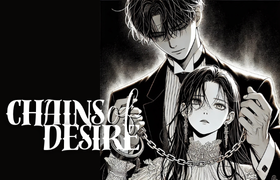Min-jae’s life, now entrenched in the world of high finance at Goldman Sachs, had become a never-ending loop of relentless work and ever-increasing expectations. His colleagues marveled at how someone so young could possess such a sharp mind and such a fierce work ethic. They never knew the truth behind it: that it was all an escape, a way to bury the pain that never quite left him.
But for Min-jae, there was something deeply satisfying in his exhaustion. It wasn’t just about the job at Goldman Sachs, or even the massive paycheck that came with it—it was about the constant grind. Every hour he spent working, every project he took on, every financial model he perfected was another hour that he didn’t have to think. He didn’t have to think about his family, his past, or, most of all, her—Seo-jin, the woman who had once meant everything to him, and whose rejection had torn his world apart.
The pain was still there, lurking in the back of his mind, but he had learned to suppress it, to control it, by working himself into the ground. Sleep was a luxury he no longer allowed himself. He reveled in the exhaustion, the hollow emptiness it left in him, because in that emptiness, there was no room for regret. There was no room for remembering how he had once been—a spoiled, arrogant heir who had everything handed to him.
Min-jae had always been a fast learner, and the high demands of investment banking only fueled his desire for more. But it wasn’t enough. He knew he had more potential than even Goldman Sachs could offer. So, without hesitation, he enrolled for a PhD in Economics at Harvard. The decision wasn’t based on a desire for accolades or prestige; it was driven purely by his obsessive need to be the best, to learn, to evolve. A man who never stopped moving, who never allowed himself a break, could not rest until he had conquered every challenge before him.
He threw himself into the PhD program with the same ferocity that had defined his MBA years. His professors were astounded by how quickly he adapted. Min-jae was not only excelling in the coursework, but he was also producing groundbreaking research, developing theories that advanced the field of economics. His ability to see complex economic patterns, to intuitively understand market shifts, and to analyze data from every angle was unmatched.
But it wasn’t just his academic brilliance that set him apart—it was his work ethic. Min-jae didn’t just attend classes; he buried himself in every textbook, every journal article, every piece of research he could get his hands on. While other PhD students spent their nights relaxing, socializing, or taking breaks, Min-jae worked. He spent hours in the library, hours on his research, all while maintaining his grueling job at Goldman Sachs.
His colleagues at Goldman were in awe of his ability to juggle both his job and his academic pursuits. They knew he was brilliant, but they had no idea how much of his brilliance was driven by the ghosts of his past—the haunting memory of Seo-jin, the woman he could never forget, who had rejected him so harshly, leaving him with nothing but his own self-hatred.
In his pursuit of excellence, Min-jae sacrificed everything else. Friends, family, relationships—none of that mattered anymore. He had cut ties with everyone, including his family. His father’s attempts to contact him, his mother’s worried messages, his sister’s teasing notes—they were all ignored. He couldn’t let them back in, not while he was still so deeply ashamed of who he had been. The version of Min-jae they remembered, the lazy, entitled heir, was dead to him. All that mattered now was this new Min-jae—the one who worked until his bones ached, who consumed knowledge like air, who pushed himself further and further until the idea of failure was unthinkable.
Min-jae didn’t just complete his PhD early—he shattered the records. In less than two years, he completed his entire doctorate, something that usually took four to six years. His dissertation, which explored the intersections of global financial markets, behavioral economics, and the psychology of corporate decision-making, was hailed as groundbreaking. It earned him accolades, invitations to speak at global conferences, and job offers from some of the most prestigious think tanks and institutions in the world. Yet, none of that mattered to him. None of it filled the emptiness he had carved out for himself.
His days became a blur of simultaneous tasks. He woke up at 4:30 a.m., hit the gym for a brutal workout, then went to work at Goldman Sachs, tackling complex financial strategies and leading multi-billion-dollar projects. By the time the workday ended, he would head straight to Harvard for classes, seminars, and meetings with his professors. He would return to his apartment late at night, sometimes after midnight, only to force himself to stay awake and continue researching, working on his dissertation, or reading more books. By the time his head hit the pillow at 4 a.m., he had already forgotten how many hours had passed. Four hours of sleep. That was all he needed. Or rather, that was all he would allow himself.
Exhaustion became his constant companion, and Min-jae embraced it fully. When his body ached, when his mind threatened to give way to fatigue, he pushed harder. He wanted to feel the burn, to feel the pain, because that pain reminded him that he was still moving forward. It was in the grind that he found purpose. In the relentless pursuit of perfection, he found something to hold onto.
The emptiness of his life was masked by his work and his studies. He rarely thought about his family, but when he did, the memories were fleeting. He couldn’t bear to allow them in. He had severed the ties long ago, and he couldn’t risk letting anyone back into his heart—especially not Seo-jin. The woman who had once been the center of his world now existed only in his mind as a painful reminder of who he had been and what he had lost.
He had become so engrossed in his work that he no longer had time for personal connections. Even though he had achieved more than he could have ever imagined, there was still something missing—a piece of him that he couldn’t quite fill. No matter how much success he piled onto his already overflowing plate, it never seemed enough. His past had made him into a machine, one that functioned at maximum capacity but had no soul left to give.
But Min-jae didn’t care. As long as he was working, as long as he could exhaust himself to the point of collapse, he didn’t have to think. He didn’t have to remember who he was, or who he had once hoped to be. All that mattered was the next task, the next challenge.
And so he worked.












Comments (0)
See all